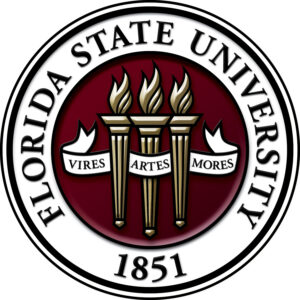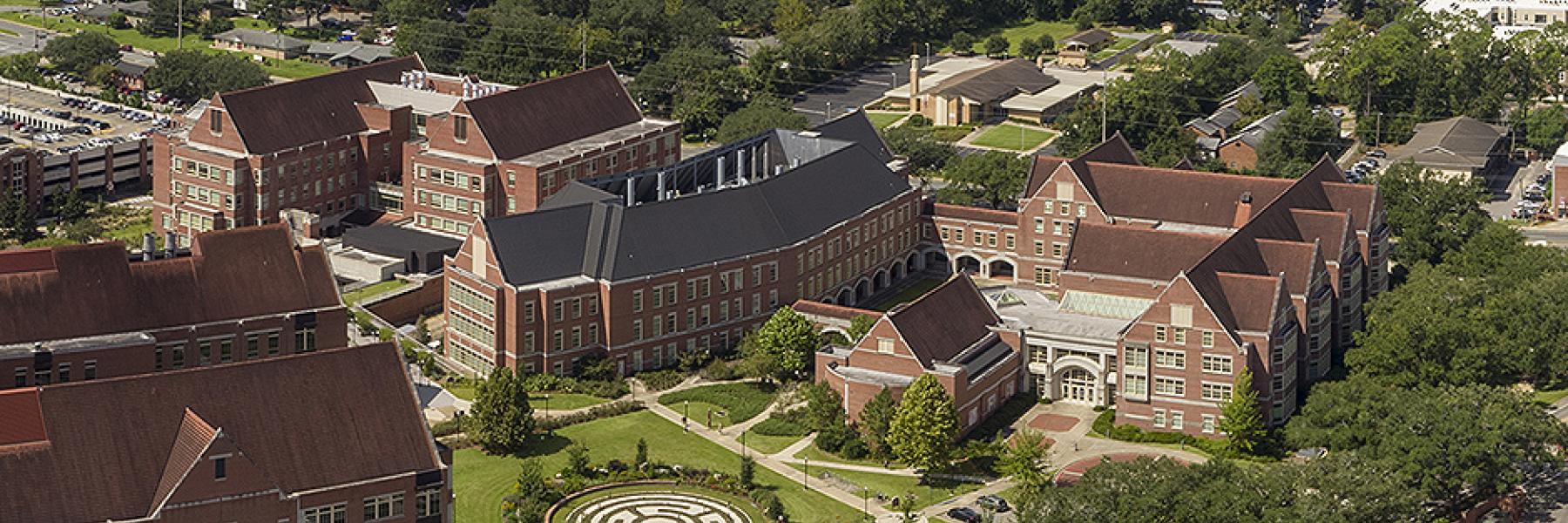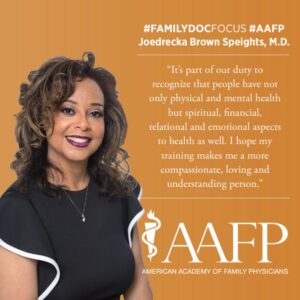
Assistant/Associate/Professor (Open Rank), FSU Department of Family Medicine & Rural Health
Tallahassee, FL
Open Rank Professor, 12 Month Salaried – Multiple Positions (Family Medicine & Rural Health – Medicine)

Position Overview
The Florida State University (FSU) College of Medicine invites applications and nominations for an academic Family Medicine Physician to join the faculty as an Assistant/Associate/ or Full Professor (Open Rank) for a 12-month appointment in the Department of Family Medicine and Rural Health. The Department is in the midst of an exciting time of growth, and there are multiple clinical, teaching, and research pathways for qualified applicants to pursue a fulfilling career. The FSU COM has a focused mission of training patient-centered physicians devoted to the needs of rural, underserved, minority, and elderly populations. FSU COM is very “Family Medicine friendly” with family physicians holding several key administrative positions.
Responsibilities
- The Florida State University College of Medicine (FSU COM) is seeking an academic family physician to fill a full-time 12-month open rank faculty position at a minimum rank of either Assistant or Associate Professor, dependent upon qualifications and experience, in the Department of Family Medicine and Rural Health. This is a clinical position and is not tenure-earning eligible.
- The position will involve substantial teaching and supervision of health professional students as well as assisting in the delivery of an innovative, integrated curriculum and practice in a new clinical facility.
- The position will include around 40% direct patient care at an affiliated primary care practice.
- The Department has research interests in the areas of health equity, community health, rural health, and innovative health care.
- As members of the UF-FSU Clinical and Translational Science Award Program, we welcome a faculty member who can complement and/or enhance these areas of innovation with community-engaged research.
Qualifications Applicants must have a doctoral degree (MD or DO) in an appropriate field from an accredited institution and personal and professional goals that are consistent with the mission of the FSU College of Medicine (FSU COM). Applicants should have relevant academic, clinical, and professional experience, excellent skills in communication and collaboration, and be passionate about the field of family medicine and rural health.
Required Qualifications
Doctoral degree (MD or DO), four years of experience, and personal/professional goals which are consistent with the mission of the FSU College of Medicine. (Note: years spent in the completion of an approved residency program may count toward required experience.)
- Valid license to practice medicine in accordance with Chapter 458, Florida Statutes
- Completion of an approved U.S. Residency Program and valid Board Certification in Family Medicine or appropriate discipline
- Current Federal DEA license
- Current Basic Life Support (BLS) Healthcare Provider Certification by certifying agency, or the ability to obtain prior to hire
- Provider trained in and passionate about Family Medicine
- Experience assessing patient condition independently or in consultation
- Experience providing appropriate treatment or referral for treatment
- Knowledge of and ability to apply current principles, methods and practices for the delivery of medical evaluation, diagnosis and treatment
- Knowledge of relevant drugs and non-pharmaceutical patient care aids
- Experience with Microsoft Word, Excel, and Outlook or equivalent software
- Experience communicating effectively verbally and in writing
- Experience establishing and maintaining effective working relationships
Post-job offer, but prior to hire, the following will be required:
- Current PPD (Purified Protein Derivative) test as performed by a qualified physician from within the past 6 months
- Physical examination completed by a qualified healthcare provider/physician from within the past 6 months
Within 30 days of hire, you must provide:
- Documentation of vaccination for Tetanus within the last 10 years
- Proof of immunization OR positive titers for Hepatitis B
Preferred Qualifications
- Experience in teaching medical students and/or primary care research is highly desired.
- Scholarly interest, knowledge and experience with health equity or community-based health outcomes or clinical research is desired.
- Clinical experience post-residency/fellowship is desired.
- Knowledge and experience with medical informatics is helpful.

Florida State University
One of the nation’s elite research universities, Florida State University preserves, expands, and disseminates knowledge in the sciences, technology, arts, humanities, and professions, while embracing a philosophy of learning strongly rooted in the traditions of the liberal arts and critical thinking. Founded in 1851, Florida State University is the oldest continuous site of higher education in Florida. FSU is a community steeped in tradition that fosters research, encourages creativity, and embraces diversity. At FSU, there’s the excitement of being part of a vibrant academic and professional community, surrounded by people whose ideas are shaping tomorrow’s news! Learn more about our university and campuses.

FSU College of Medicine
The FSU College of Medicine will educate and develop exemplary physicians who practice patient-centered health care, discover and advance knowledge, and are responsive to community needs, especially through service to elder, rural, minority, and underserved populations. We will lead the nation in preparing compassionate physicians to deliver the highest quality 21st Century patient-centered medicine to communities of greatest need.
As a community-based medical school, the FSU College of Medicine provides third- and fourth-year clinical training at regional medical school campuses around the state through affiliations with local physicians, ambulatory care facilities and hospitals.
At the Regional Medical School Campus – Tallahassee, clerkship directors from the Tallahassee area direct the students’ rotations in family medicine, internal medicine, pediatrics, surgery, obstetrics-gynecology, geriatrics, psychiatry and emergency medicine. Additional community physicians serve as clerkship faculty in these and other clinical areas.

Department of Family Medicine & Rural Health
The Department of Family Medicine and Rural Health is actively engaged in all aspects of the mission of the College and, thus, chose to use the College mission as its own. The mission of the Department is to educate and develop exemplary physicians who practice patient-centered health care, discover and advance knowledge; we are responsive to community needs, especially through services to elderly, rural, minority, and underserved populations.
Department faculty are involved in all levels of administration, educational leadership, service, teaching as well as advising across all four years of the curriculum. Faculty also provide clinical care to underserved populations of all types in the Tallahassee area and across the state.

Dr. Joedrecka Brown-Speights, Chair of Family Medicine & Rural Health
About the Department
The Department of Family Medicine and Rural Health is deeply intertwined with virtually all activities of the College of Medicine and has a nearly identical mission statement:
- “To support the FSU College of Medicine in educating and developing exemplary physicians who practice patient-centered health care, discover and advance knowledge and who are responsive to community needs especially through service to elder, rural, minority and underserved populations.”
The FSU College of Medicine is a community-based medical school and has a distributed regional campus model of education that emphasizes primary care medicine. We use community physicians and facilities for the education of our students. Year 3-4 education is located at regional campuses located across the state (Pensacola, Tallahassee, Daytona, Orlando, Sarasota, Winter Haven, and Ft. Pierce). There are also rural training sites located in three rural communities (Marianna, FL, Immokalee, FL, and Thomasville, GA).
These sites develop affiliations with nearby community hospitals, clinics, and physician offices. Each teaching site must deliver the standard College of Medicine curriculum and is supported and directed by the department faculty. The community physician faculty supervise the students’ clinical experiences and are credentialed, trained and supported by the College of Medicine.
We are committed to our mission and all faculty are recruited and supported so that our number one priority is teaching students. We have an open-door policy and are always available to teach, mentor, and advise our students. The faculty in the Department of Family Medicine and Rural Health “practice what we preach” and are involved locally, nationally, and globally in the care of the underserved. Read on to learn more about what we are about!
Learn more about the Department by visiting our website.
Rural Health Medical Programs
The Rural Medical Education Program at the Florida State University College of Medicine is a crucial part of the College of Medicine’s mission.
Established in 2005, the FSU Rural Program in Marianna, Florida is an exciting learning experience for students. It offers students the opportunity to spend their third year of medical school integrated into a rural medical community. However, what makes the program unique is that the students are engaged in Longitudinal Integrated Clerkships (LIC). This approach to medical education uses continuity as the organizing principle.
At our Regional Campuses, students spend their third year in “block style” clerkship rotations. In the “block” model each student spends six weeks on individual clerkships to fulfill their requirements. The LIC differs in that it offers medical students the opportunity to participate in the comprehensive care of patients over time. The program begins with an intense “boot camp” to reinforce clinical skills learned in the first two years. The students then begin all their required clerkships simultaneously, and continue them for the full third year. After 10 years in the traditional style, our inaugural LIC class began in the summer of 2015.
As a result of the LIC experience our Rural Program students have the opportunity to develop relationships with patients and gain a better understanding of not only their health issues, but their values and social determinants of health. This model also gives students the opportunity to build longer, more meaningful relationships with their clerkship faculty. In this setting, students develop clinical and professional skills on a much deeper level.
FSU PrimaryHealth™
FSU PrimaryHealth™ is the Florida State University College of Medicine’s new primary-care health center established to meet community health needs in Leon and surrounding counties.
The same physicians who have helped the Florida State University College of Medicine achieve a national reputation for meeting community health needs are now available to be your personal health-care provider. FSU PrimaryHealth welcomed its first patients on May 13, 2019.
According to the Association of American Medical Colleges (AAMC), the FSU College of Medicine is among the best in the country at “preparing physicians to fulfill the needs of the community.” The AAMC also rates the FSU College of Medicine among the top programs for “graduating a workforce that will address the priority health needs of the nation, preparing a diverse physician workforce and providing field experience in community health.”
The College of Medicine’s mission is to be responsive to community needs, especially through service to elderly, rural, minority and underserved populations. That means being responsive to your healthcare needs with skilled physicians who also teach FSU medical students the art and science of medicine.
Access to a primary-care physician is of vital importance to our patient’s health. It’s where you turn to have a skilled health professional assess, diagnose, and treat most of your health problems. We can be your “health-care home,” where our goal is to help you achieve optimal health outcomes utilizing available community and medical resources.

Join our team at FSU PrimaryHealth, where excellence in healthcare meets academic innovation
Florida Medical Practice Plan (FMPP)
The Florida Medical Practice Plan (FMPP) is the faculty practice plan for the Florida State University College of Medicine. As part of the FSU College of Medicine, FMPP partners with local healthcare facilities in Tallahassee and across Florida to provide healthcare services, and medical training opportunities for students, residents, and fellows.
With numerous clinical partnerships in place, we are pleased to provide the following services:
- Family Medicine
- Geriatric Services
- Medical Ethics
- Memory Disorder
- STD Healthcare Services
- Student Health Services
- Palliative Care
- Pathology
- Transitional Care
- Wound Care
The purposes of the practice plan are to 1) further the education, service, and research missions of The Florida State University College of Medicine, a component of The Florida State University Board of Trustees; and 2) enable faculty to maintain clinical competence, fulfill certification requirements, share expertise with other health care providers, and serve as clinical teacher for students and resident physicians.
FSU Total Rewards
FSU offers a robust Total Rewards package. Visit https://hr.fsu.edu/total-rewards to learn more about our Compensation, Benefits, Wellness, Recognition, and Employee Development programs.
Fast Facts
- Founded in 1851; oldest continuous site of higher education in Florida
- Carnegie Commission classification: “Doctoral Universities: Highest Research Activity”
- 44,597 students from every Florida county and 130 countries
- Accepted freshman profile for fall 2022:
- 4.1-4.5 average GPA; 26-31 average ACT composite score; 1220-1360 SAT score
- 96% retention rate for freshmen; 75% graduation rate within four years
- 17:1 student/faculty ratio
- 394 buildings on 1,715.5 acres; main campus in Tallahassee is 485.7 acres
- 2,615 traditional faculty; has included 6 Nobel Laureates
- 14,705 total employees
- Operating budget of $1.95 billion
- FSU’s research expenditures totaled more than $355 million for FY 2022.
- 282 degree programs: bachelor’s, master’s, doctoral, specialist, professional

Tallahassee, Florida
Tallahassee, nestled among the rolling hills of northwest Florida, is in the center of the eight-county “Big Bend” area. Geographically, Tallahassee is close to both the Gulf of Mexico, a mere twenty miles to the south, and to Georgia, fourteen miles to the north. With a student population exceeding 70,000, Tallahassee is a college town, home to Florida State University, ranked the nation’s 19th-best public university by U.S. News & World Report. As the capital, Tallahassee is the site of the Florida State Capitol, Supreme Court of Florida, Florida Governor’s Mansion, and nearly 30 state agency headquarters. The city is also known for its large number of law firms, lobbying organizations, trade associations and professional associations, including the Florida Bar and the Florida Chamber of Commerce. It is a recognized regional center for scientific research, and home to the National High Magnetic Field Laboratory. In 2015, Tallahassee was awarded the All-American City Award by the National Civic League for the second time.
How to Apply
FSU College of Medicine has retained Academic Med to assist with this important search. Academic Med is a retained executive search firm that specializes in the recruitment of physicians, scientists, and leaders for academic medical schools & health systems throughout the United States. This search is being led by Gentry Zacheis, President of Academic Med. Please submit applications, nominations, and/or confidential inquiries to: solsen@academic-med.com
EEO/AA
Florida State University (University) is an equal opportunity employer and educational provider committed to a policy of non-discrimination for any member of the University’s community on the basis of race, creed, color, sex, religion, national origin, age, disability, genetic information, veterans’ status, marital status, sexual orientation, gender identity, gender expression, or any other legally protected group status. This policy applies to faculty, staff, students, visitors, applicants, and contractors in a manner consistent with applicable laws, regulations, ordinances, orders, and University policies, procedures, and processes.




